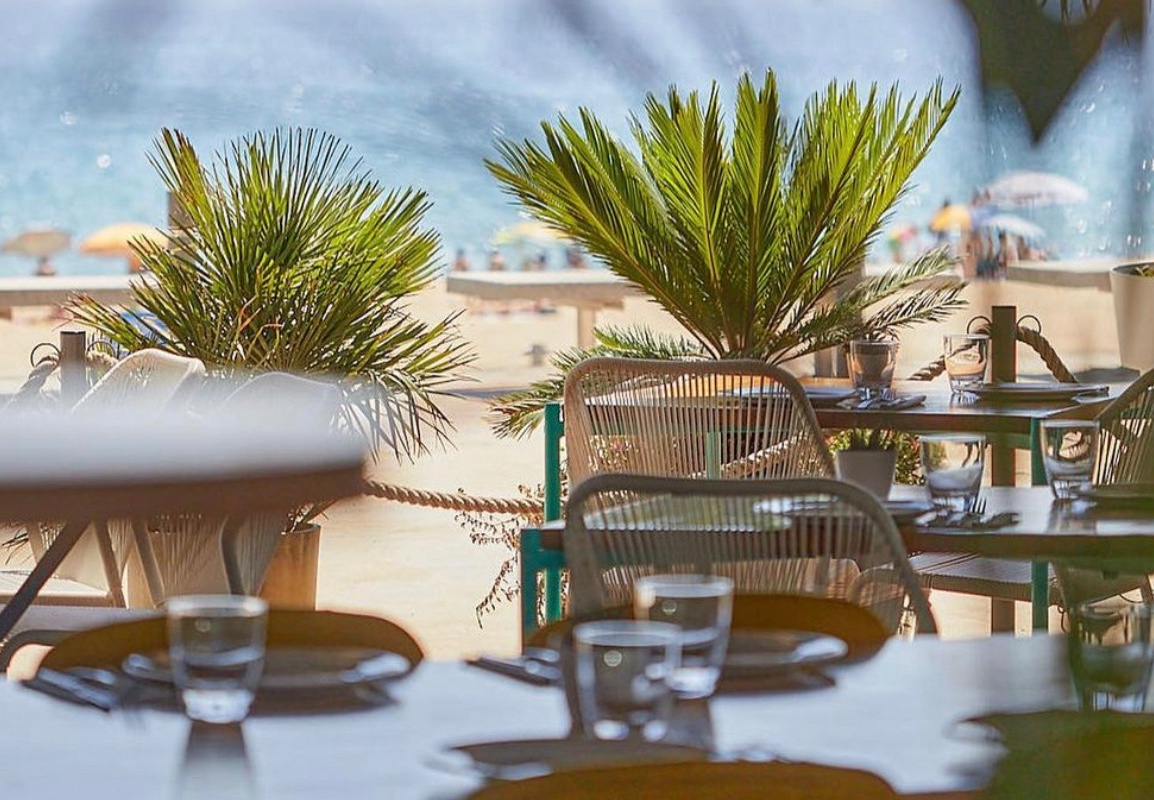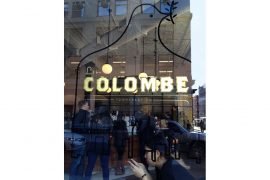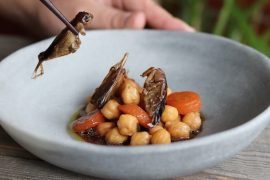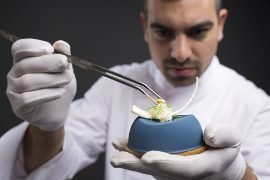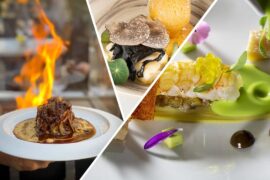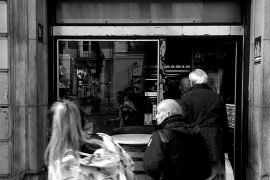In little more than four kilometers, walking from the Mar Bella beach (where the promenade begins) to the height of Colón, there are a number of great diversity of gastronomic proposals where the sea is the common link between the stoves and the views. A delicious experience that Barcelona’s climate allows you to enjoy almost all year round.
From north to south, we find Can Fisher, located on Barcelona’s Passeig Marítim, at the height of Poblenou, on the Bogatell beach. Here, the sea is reflected in the fish and seafood that arrives directly from the fish market every day to star in rice dishes or whole pieces cooked in three styles: salt, grilled or Donostian style. They always have on the menu gems like cod confit with tomato concassé, rossinyols and herb aioli au gratin. In the rice, you can also taste that sea, starting with the intense flavor fumet and the ingredients that make up their paella del senyoret, with all the peeled seafood and rice from the Ebro Delta at its peak grenyal.
In Barceloneta, on the beach of Somorrostro, we find another establishment that, with the sand almost at your feet, allows you to enjoy seafood dishes and Mediterranean essence, with all the comfort: at Sal Mar you can enjoy from crispy prawns with Asian tartar to the canonical rock mussels a la marinera. If the craving is for rice, the fried baby squid, squid, Padrón peppers and ink aioli will satisfy the craving.
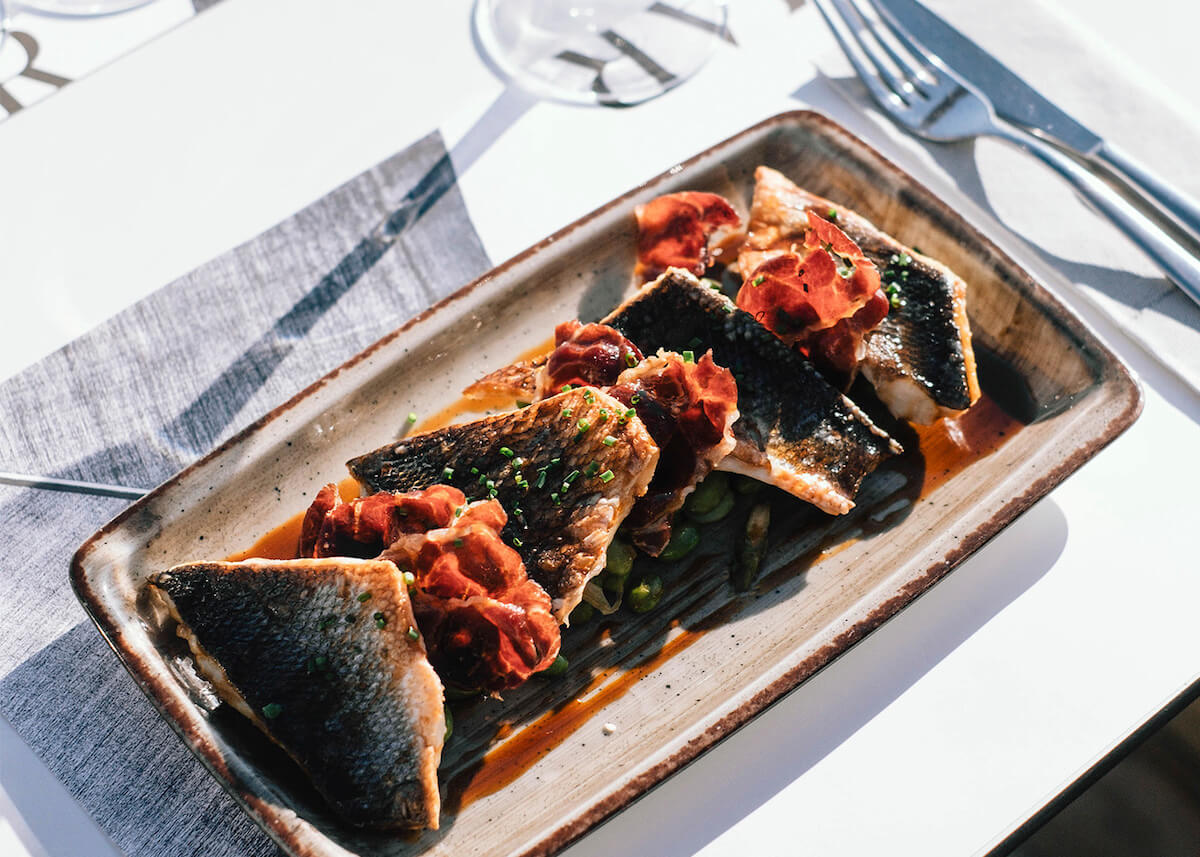
And following the Passeig Marítim, it will end (oh, coincidence) in restaurants. Yes, just when the beach meets the W Hotel, there is a restaurant on the first floor and, since recently, also at the top of it. In the first case, Pez Vela is the protagonist, a restaurant that has a long history in the area and is a favorite of locals and visitors. At their tables, with a wonderful view of the beach and the sea, you can enjoy tasty dishes such as grilled red tuna with roasted eggplant, dried tomato and teriyaki sauce, or fried sea bass marinated with soy, ginger and lemon, an interesting alternative to the traditional fried fish.
Rising 26 floors of the W Hotel, Noxe welcomes the diner who seeks exclusivity, to see the sea from a unique perspective and to pair it with good cocktails. Here, the flavors turn towards the East, and more specifically towards Japan, with a menu signed by the Japanese chef Azumasong and featuring references of that cuisine such as the trio of tartar (salmon, lemon fish and tuna tartar, accompanied with black tobiko and wasabi cream), nanbanzuke salmon (pickled salmon with sweet and sour sake vegetables with ginger and chili) or delicious freshly cut sashimi.
Although, if heights are the requirement, just next door is chef Romain Fornell’s brand new Azul. In this new project, the sea climbs to the heights to sit at the table of a rooftop with a modernized seafaring tradition, in an elegant atmosphere. A wide selection of seafood from local fish markets: sea bass, turbot, monkfish and shrimp, also protagonists of its rice with red shrimp and ñora.
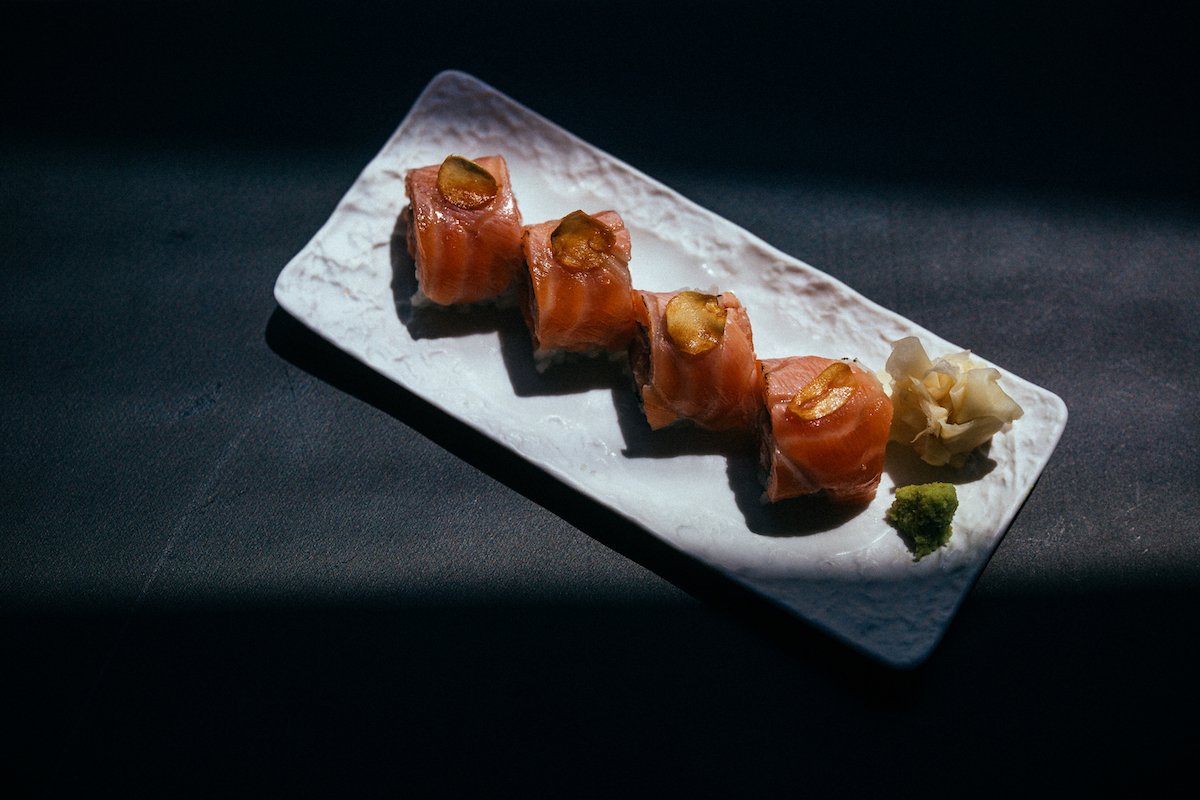
On the first floor of this same building is another classic, Maná75, which many local and visiting diners surely know for its rice dishes. What is perhaps not so well known is that the sea is widely represented in its menu, in the form of stews: spectacular mussel and clam casseroles, or its fish and seafood suquet. Good product treated with respect and adequate cooking, allowing the raw material to be savored in all its splendor.
The culinary proposals are added to the main reason for coming to the Mediterranean: to enjoy a city that, until just 30 years ago, had stopped looking at the sea.
Without having the horizon of the Mediterranean framed in its windows, if we go into the dock of Spain, in the Maremagnum area, with that salt water as a driving vehicle, we find two gastronomic proposals that bring the sea to our palate: Fiske and the newly opened Vraba.
Fiske brings together in a versatile menu two visions of the sea, the Mediterranean (at its feet) and the Baltic, as Scandinavian cuisine classics coexist and, in some cases, merge with our local tradition. Enjoying a cold smoked crab soup with grilled avocado and chili oil followed by a hake with pil pil of roasted peppers are an example of this interesting proposal, with the sound of the clanking of the metal elements of the nearby boats as a soundtrack.
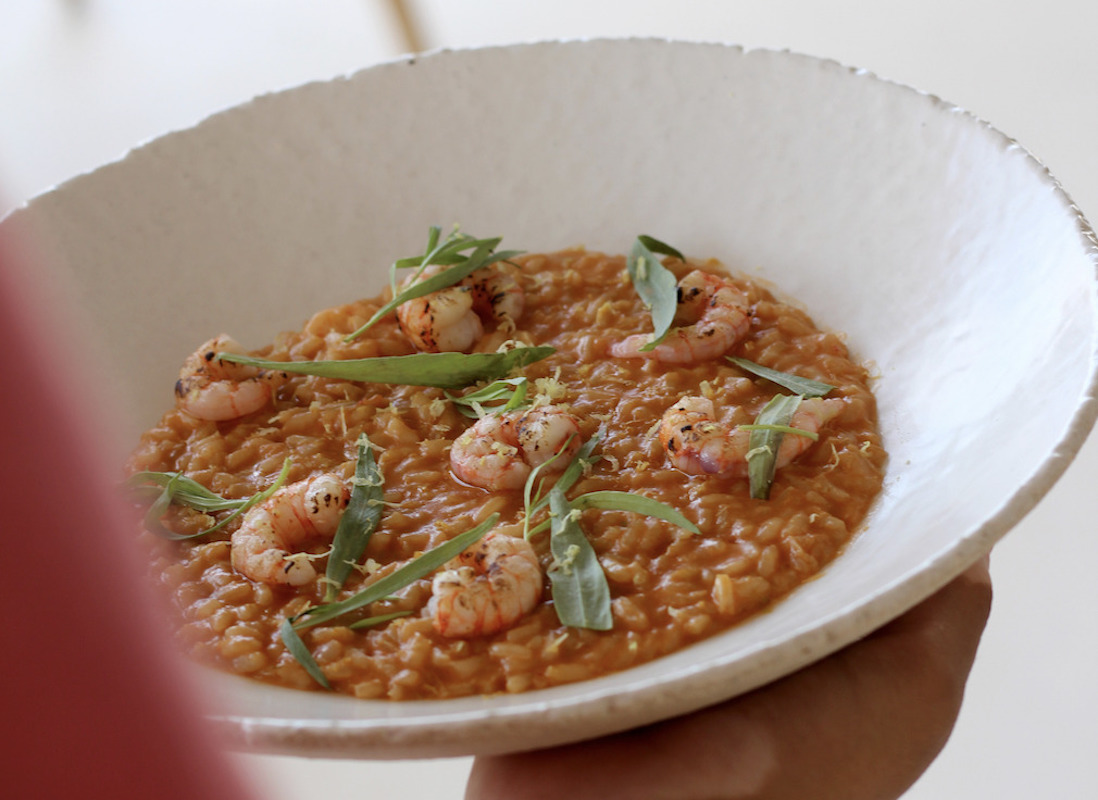
We end the tour in Vraba, which with its arrival precedes the magnitude that will arrive in port with the America’s Cup, one of the biggest international sporting events. Housed on the top floor of the America’s Cup Experience, this restaurant encapsulates a joint project of chefs Albert Ventura (Coure), in the conception, and Jordi Vilà (Alkimia) in the execution. Pieces of monkfish, sea bass or turbot served whole, along with dishes such as cod fritters with babaganoush or salmorejo with bonito mojama give a pretty good idea that this cuisine is based on a trio: tradition (Catalan), cuisine (seafood) and vision (with nods to oriental cuisine).
Here are eight reasons to invite the sea to the table at a restaurant evening. And to these should be added the main one: to enjoy a city that, until just 30 years ago, had stopped looking at the sea. It is time to enjoy the Mediterranean in all its splendor and the creative gastronomic talent that this coastline treasures.

